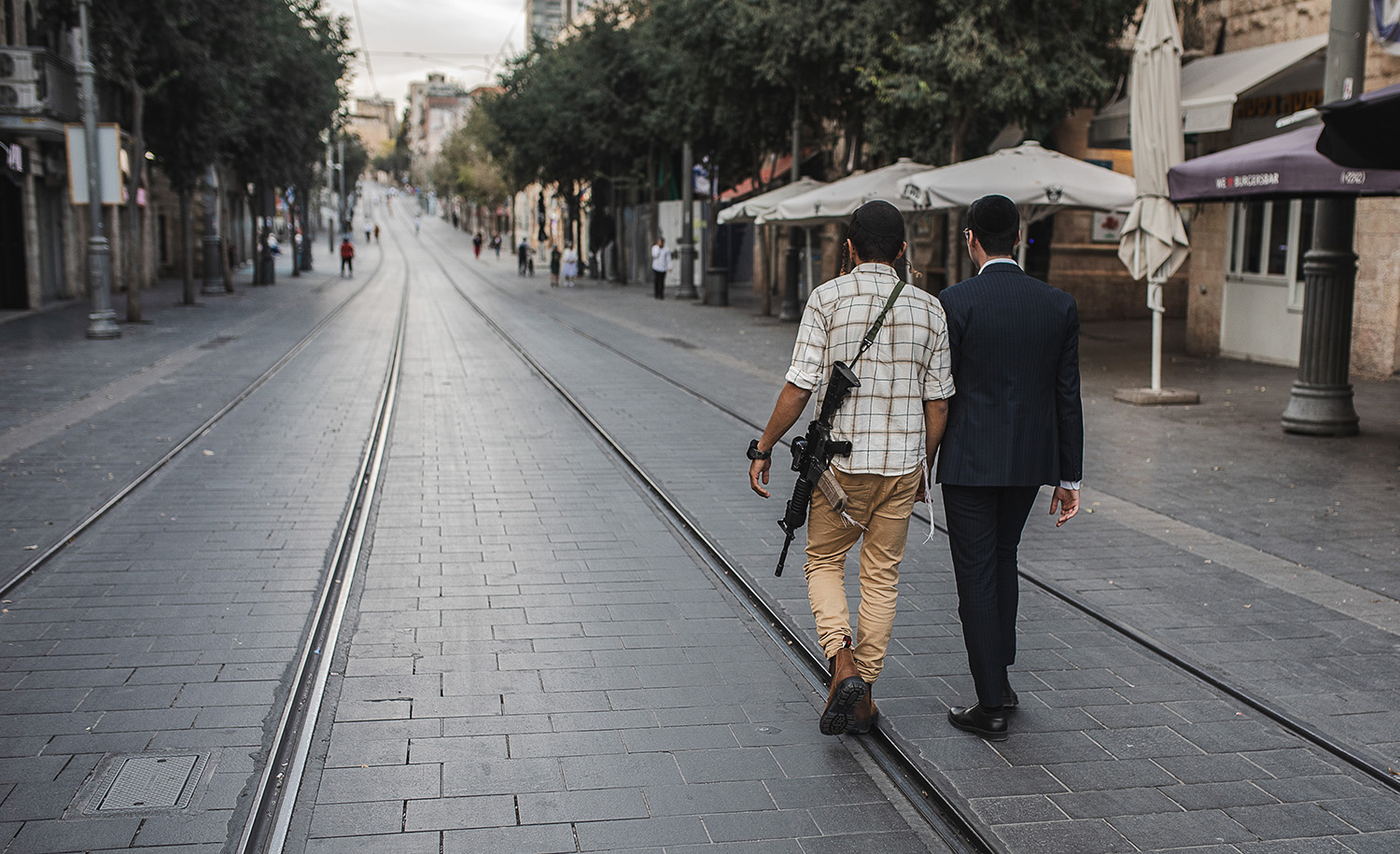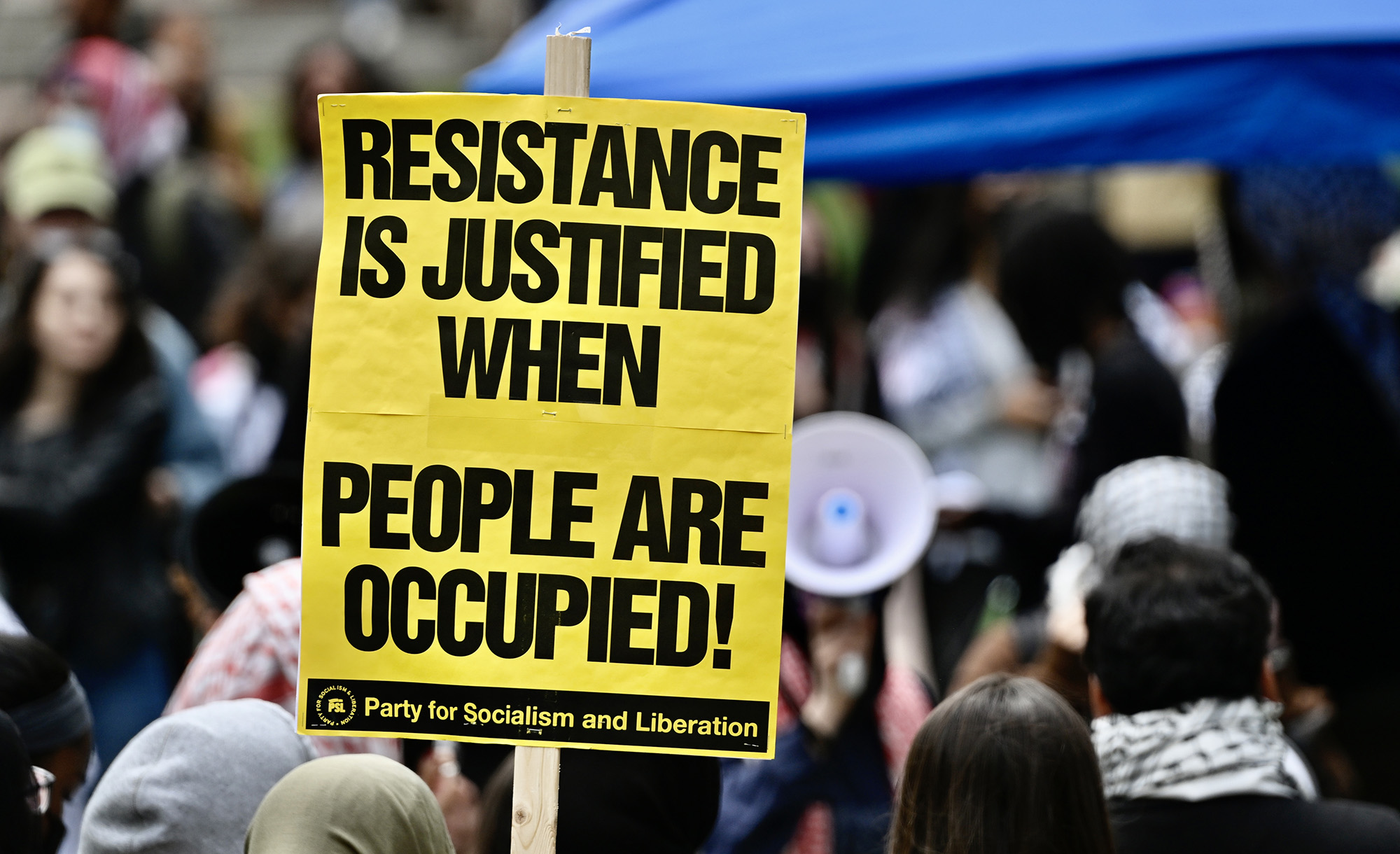The Bible’s first question, asked of Adam by God, is ayekah, “Where are you?” Adam does not answer.
The proper response, given later by Abraham and still later by Moses and the prophets, is Hineni, “Here I am.”
So, where are we? As fellow Jews, in our hearts we are horrified, grieving, enraged, energized, determined. But where are we in our thinking and in our aspirations? Here are three suggestions for where we should be.
First, about survival and security. The first duty of any government is the protection of life. And the first reason for the very existence of the state of Israel, born out of the ashes, was “Never Again.” On October 7, the Israeli government failed in its first duty. Devastated, our faith in Israel’s ability to safeguard Jewish lives is, for now, shattered.
At the same time and predictably, in America and elsewhere where victimhood seems proof of virtue, sympathy for Israel and the Jews has mushroomed, even amidst emboldened expressions of Jew-hatred. Yesterday’s comfortably complacent Jews are now forced to acknowledge, in the words of the Passover Haggadah, that in every generation they still rise up to destroy us. And, as always, when the Jewish people are attacked and murdered, loyal Jews rally with generous financial aid and moral support. And it’s a great good thing they do.
But why, we should now ask ourselves, do Jewish lives matter? Why do we suddenly care so much about Israel or Jewish survival? Is it just from a nativist love of our own? Is it merely to deny posthumous victories to Hitler? Is it only the Jew as eternal victim that we cherish, affirming the identity chosen for us by our enemies? Hardly so, and God forbid. “Never again” is never enough. “Never again” is a necessary but hardly sufficient motto for the Jewish state and the Jewish people. Not just Jewish lives, but the Jewish way of living matters. It should fill our thoughts and capture our hearts.
Second, then, about Jewishness and the Jewish way of living: Jewish identity, Jewish purpose, Jewish meaning. Never simple ideas, in the modern world these have become highly contested notions, not least in Israel. For Israel is not only a Jewish state but a modern liberal democratic one, with a technologically sophisticated and open society, a free press, and an engaged citizenry. That citizenry includes ethnic and religious minorities—Christians, Muslims, Druze—and the Jewish majority is itself ethnically and religiously diverse. The recent poisonous political battles in Israel were ultimately about nothing less than the Jewishness of the Jewish state: whether and in what ways the Start-Up Nation should remain also the People of the Book.
But truth to tell, both sides appeal to Jewish principles, the Israeli left to the prophets’ demands for justice and regard for the other, the Israeli right to the Law’s concern with holiness and the improvement of oneself. More important but less noticed because taken for granted, beneath these great political differences are widely shared beliefs and values, also very much Torah-based: a cultural disposition to gratitude for the astonishing gift of life and world. A belief in the equal dignity of all human beings, each in the image of God. The duty to honor father and mother, the foundation of decent family life and cultural transmission. Reverence for human—and animal—life and limb, body as well as soul. Equality before the law, equally applicable to all. Commitment to care for widows, orphans, and the poor and to the humane treatment of the stranger. Moral seriousness: a felt need to give an account of one’s life, to practice atonement, to seek—and offer—forgiveness.
We should recognize an even more fundamental feature of the Jewish way of life, one that stands among the chief reasons why we are hated. We are summoned to bear witness against idolatry—that universal temptation to fill the God-shaped hole in the human heart with things that can never satisfy and that always lead astray. Long ago, idolatry was the worship of the sun, the moon, and the earth—and the golden calf. Always and everywhere, still today, it can be the devotion to wealth, power, fame, and domination. In modern times, it has come in the diabolical form of ideology: National Socialism, Communism, Maoism, and radical Islam, deadly false gods to which millions of innocent lives have been sacrificed. And, dare I say, idolatry also includes the worship of the market, of art and culture, and of human choice and human fiat as the sole source of all value. Against all these false gods, the Jewish people bear witness to the presence of a higher power and source of goodness, the devotion to which enables human beings to live better than we otherwise could and to realize the promise implied in our being the creature made in God’s image.
Finally, a few thoughts about the Jews, Israel, and the West. Although the Jewish people are few in number and in some respects a nation apart, they are a people of enormous consequence for the world. First, ideas central to America and Western—that is, Judeo-Christian—civilization first entered the world through the Hebrew Bible: all men are created equal; respect for life; the Ten Commandments. America’s political ideas may come from Locke and Montesquieu; modern science and technology are largely of European and North American origins. But humanly, morally, and religiously speaking, the West—whether it still knows it or not—is at its root and at its best a biblical civilization.
Second, in this time of moral confusion and social fragmentation, Israel by its example has something to teach us—if we only pay attention. Since I started living long stretches in Israel in 2016, I have increasingly felt that Israel is today the moral capital of the West. Yes, its political institutions are notoriously weak; the country harbors deep divisions; and it suffers thus-far-insoluble problems with its neighbors. But let’s look not at the headlines, but at everyday life as lived.
Israel is the only Western country that lives with a vital devotion to its future: alone in the developed world, Israel has a birthrate above replacement, almost three children per woman per lifetime (in the U.S., 1.6 and falling), with a low level of out of wedlock births (in the U.S., now 40 percent). In my neighborhood in Washington, people have dogs; in my neighborhood in Jerusalem, people have children, and they are treasured above all else. Extended families are strong, intergenerational ties are celebrated, tradition is alive, rich, and well. Most Israelis, religious or not, and no matter the distance, have Friday night dinners with their parents. The holy tongue is the vernacular, the calendar orders sacred time, ancestral ghosts walk the land, and popular music expresses spiritual longings in biblical idiom. National service is the national norm. Memorial Day is marked with ceremonies in every neighborhood and with a national minute of silence, as people and cars stop in place to pay respect for the fallen soldiers to whom we owe our freedom and the very existence of our nation. As these past weeks have shown, Israeli national solidarity runs very deep; people, without leadership from the top, organize themselves by the hundreds and thousands to stand with and provide for those in need. Haredi men are volunteering for the army; secular soldiers are requesting tzitzit. At bottom, one nation, indivisible—an island of cultural and moral sanity in a world gone mad.
Geopolitically, Israel also finds itself—unwillingly—at the center of our world-historical crisis. For we are living in dark times. 9/11. Islamic State. An almost-nuclear Iran. A nuclear North Korea. Expansionist Russia. China extending everywhere its malign influence. And now October 7. Once again, a gathering storm, an approaching 1939, but with no Churchill to warn of the danger and America weakened at home and dithering abroad. The woke world sleeps. But at the tip of the spear, it is left to little Israel to make the first stand against radical evil and the new axis of nations dedicated to the demise of the West. With resolve, courage, and dedication, but, alas, with much more sacrifice, Israel will show the way.
One last thought. In synagogues around the world, we recently read parashat Lekh L’kha, where our historic journey began with God’s call and wondrous promise to Abraham: a great nation, this promised land, a way of life that would be a blessing to all the nations of the world. Abraham and his people were summoned to carry God’s chosen way of righteousness, an alternative to the ways of human life uninstructed: against the wild and bloody ways of ante-Diluvian man and against the soulless and godless ways of the builders of Babel; against the tyrannical and technocratic ways of Pharaonic Egypt and the licentious and child-sacrificing ways of the neighboring Canaanites. We Jews survived the Babylonians, the Romans, the Crusades, the Inquisition, the European expulsions, the pogroms, the Shoah, the Gulag, and the murderous attacks of the modern Middle East. Yet here we are, hineni, warts and all, still doing battle against these enduring human tendencies and evils, against the Pharaohs and Amalekites and Babel-builders of today, still aspiring to realize our covenantal promise to become a kingdom of priests and a holy nation. We fail, of course, but we do not abandon the summons. We continue to stand for creation against chaos, life against death, good against evil, meaning against nihilism. We still aspire to be a light unto the nations. With God’s help, we shall overcome.
The author was awarded Tikvah’s 2023 Herzl Prize, and this essay has been adapted from his acceptance speech, given on October 29 at the Jewish Leadership Conference.
More about: Gaza War 2023, Israel & Zionism







